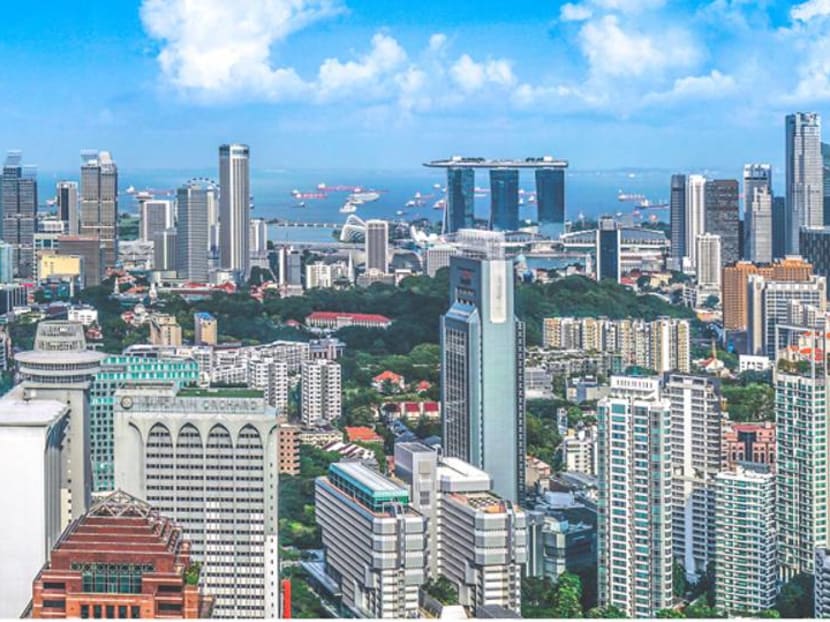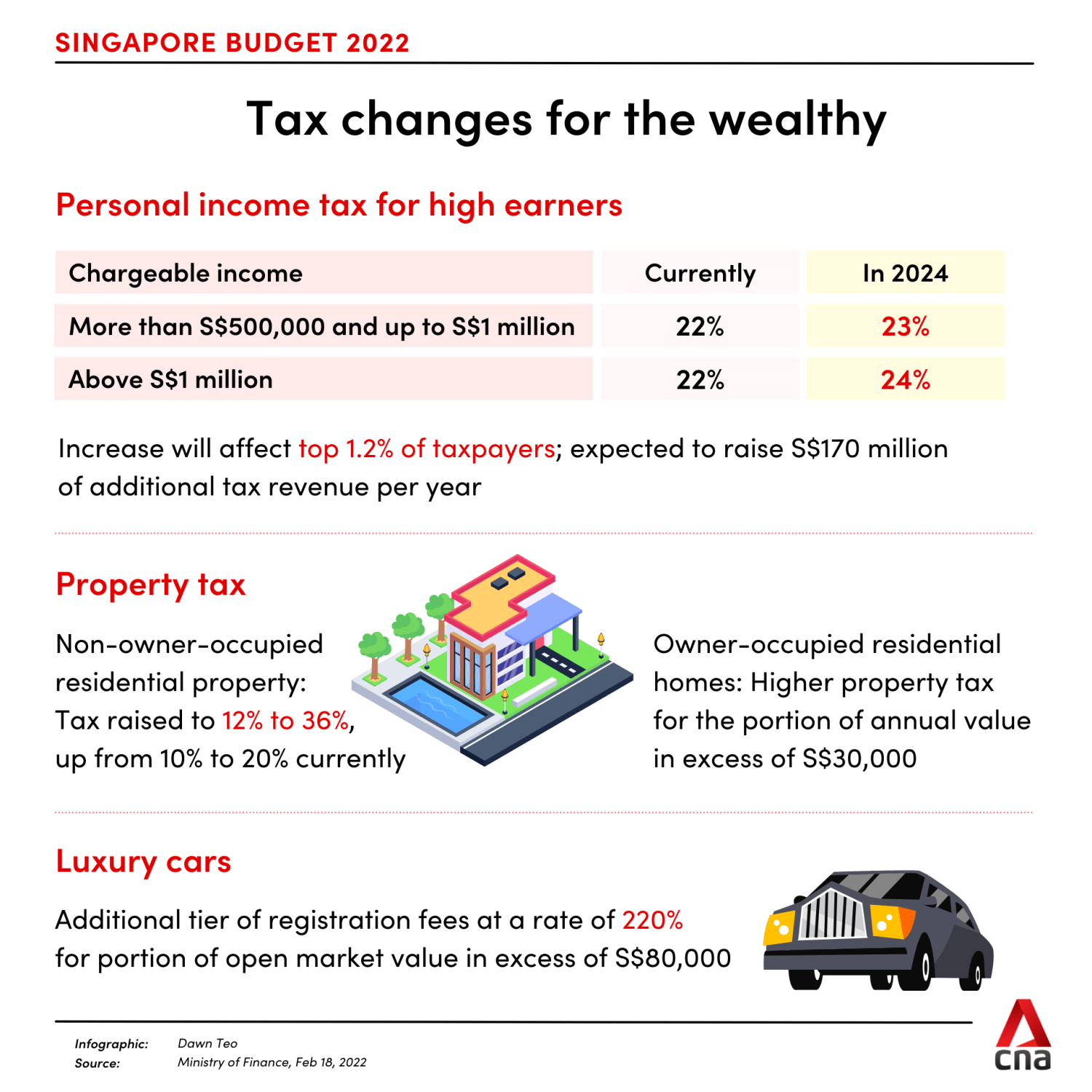Budget 2022: Higher taxes for top-tier earners, high-end properties and luxury cars

“Singapore is in a very strong position despite the pandemic as far as real estate is concerned,” said Ismail Gafoor, chief executive of PropNex Realty, Singapore’s largest private real estate company. (Photo: Unsplash/Mike Enerio)
SINGAPORE: Singapore will be raising the personal income tax rate for top-tier earners, alongside adjustments to property taxes and an additional levy on luxury cars.
These new taxes are part of “major enhancements” to Singapore’s tax regime announced by Finance Minister Lawrence Wong in his Budget 2022 speech on Friday (Feb 18).
Mr Wong, in his speech, had outlined a range of near-term aid and long-term measures to continue investing in the economy and workers, while strengthening the social compact. Tax changes are hence necessary to meet the need for more revenue to bring these initiatives into fruition, he said.
PERSONAL INCOME TAX
Noting that there is room for “greater progressivity” when it comes to personal income taxes “so that those who earn more, contribute more”, Mr Wong announced that the top marginal personal income tax rate will be raised from the Year of Assessment 2024.
The portion of chargeable income in excess of S$500,000 and up to S$1 million will be taxed at 23 per cent, up from the current 22 per cent levied on the portion of chargeable income in excess of S$320,000.
For the portion of chargeable income in excess of S$1 million, the personal income tax rate will go up to 24 per cent from the existing 22 per cent.
This increase is set to affect the top 1.2 per cent of personal income taxpayers, Mr Wong said.
It is expected to raise S$170 million of additional tax revenue per year.
CHANGES TO PROPERTY TAX
Property taxes, which Mr Wong described as Singapore’s “principal means of taxing wealth”, will also be raised, with changes set to be rolled out in two phases over the next two years.
First, all non-owner occupied residential properties will see higher taxes, with the increase being more significant for properties at the high end.
Currently at 10 to 20 per cent, the tax rates for such properties, which include investment properties, will first be raised to 11 to 27 per cent in 2023, before being raised further to 12 to 36 per cent in 2024.
For example, a large non-owner-occupied detached house located in the central area with an annual value of S$150,000 will see an annual property tax bill of about S$43,000 a year, up from the existing S$24,000.
Second, tax rates for owner-occupied residential properties with annual values of more than S$30,000 will also be raised.
Currently, the taxation rate ranges from 4 to 16 per cent beyond the first S$8,000 of a property’s annual value. Under the new changes, there will be a taxation range of 5 to 23 per cent beyond the first S$30,000 valuation by 2023, with a further increase to 6 to 32 per cent in 2024.
This increase will impact the top seven per cent of owner-occupied residential properties, such as condominiums located in central Singapore and large landed properties, with steeper tax increases for those at the top end.
When fully implemented, these two changes to the property tax will raise Singapore’s property tax revenue by about S$380 million a year.
TAX ON LUXURY CARS
Singapore will also start levying higher taxes on luxury cars to make its vehicle tax system “more progressive”.
It will do so by introducing a new additional registration fee (ARF) tier for cars at a rate of 220 per cent for the portion of open market value in excess of S$80,000.
The new rates will apply to all cars registered with COEs obtained from the second COE bidding round this month.
This is expected to generate an additional S$50 million in revenue per year.

These announcements come as the idea of wealth taxes has gathered momentum over the course of the pandemic, in Singapore and around the world.
Mr Wong said wealth taxes are an important part of Singapore’s tax system.
“Apart from generating revenue, they also help to recirculate a portion of the wealth stock into our economy and in so doing, mitigate social inequalities. Wealth taxes are therefore needed to build a fairer society where everyone can aspire to succeed regardless of their backgrounds,” he said.
At the moment, Singapore is already taxing wealth in several ways such as property tax and stamp duties on residential properties, as well as additional registration fees on motor vehicles.
While Singapore would ideally want to tax the net wealth of individuals, such a tax is not easy to implement effectively, said Mr Wong.
Many forms of wealth are “mobile”, he said, while estimating wealth accurately and fairly can be a “more complex exercise” than estimating incomes.
Singapore is not alone in facing such challenges he said, noting how some countries like Germany and France have stopped levying taxes on net wealth of individuals.
The number of OECD countries with net wealth taxes has also dropped from 12 in 1990 to three in 2020, partly due to difficulties in effectively implementing such taxes.
“We will continue to study the experiences of other countries and explore options to tax wealth effectively. In the meantime, we will strengthen our current system of taxes,” Mr Wong said.
Editor's note: This article has been updated to clarify the details on personal income tax rates.







